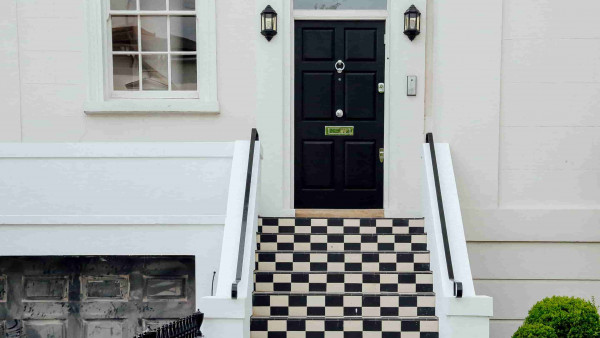Why use The Law Superstore to find a conveyancing expert?
- Expert solicitors across the country
- Vetted and regulated by the SRA
- Over 100,000 people helped
- Instantly compare quotes from up to 4 solicitors
-
I was able to identify a local solicitor to where my case was being heard and in the process of preparing a case for court.
-
I had a number of very quick responses & I am using one of them for my POA.
-
Quick to respond with clear explanation of the law in a layman’s language.cheaper fees for extra services like planning permissions etc.
-
Efficient website, immediate response, instructions issued same day.
-
You offered a number of solicitors that all responded to emails or a phone call. So very pleased.
What is conveyancing?
Conveyancing is simply the legal transfer of property from one owner to another. However, the process can feel anything but simple when you're trying to buy or sell a home. So choosing an experienced conveyancing solicitor, or licensed conveyancer, is key to feeling confident. After all, buying a home is usually the biggest purchase you'll ever make.
Licensed conveyancers, or conveyancing solicitors, act on behalf of their clients to carry out the whole process, from providing forms of ID to receiving the title deeds to the property. They navigate relationships with the mortgage broker or lender, the estate agent, the Land Registry and many more entities you may not even realise are involved in your property transaction. Their goal is to ensure the paperwork is appropriate, you're aware of any issues with the property, and that the property does legally become yours at the end of the process. This involves lots of paperwork and transactions, including dealing with searches, covenants and identifying any unexpected details around leases or groundrents. It is also your solicitor who deals as the middleman for transferring the money, so their levels of expertise and security need to be high.
What is the conveyancing process when buying?
If you're buying a home, your conveyancing process will be significantly more simple than if you had to manage buying and selling at the same time. However a lot of the processes are the same.
Your conveyancer will request paperwork, ID or bank statements from you and liase with your seller, mortgage advisor and bank.
They will also carry out local authority searches to provide you with crucial information on the property you wish to purchase.
Your conveyancer will also be able to schedule completion dates with you and your seller and prepare for the exchange of contracts and the mortgage payments. At the end of the process, they will submit your tax return and pay your Stamp Duty to HMRC.
What is the conveyancing process when selling?
If you're just selling a property in order to move into rented accomodation, move in with a loved one, or simply to allow yourself more time to find your dream property, your process will be simpler and cheaper.
Sellers need to provide the same ID and paperwork to their conveyancing solicitor to show you are who you say you are, but you won't need any mortgage brokers or other third parties to be involved.
Your conveyancing solicitor will request you fill out a TA6 Property information form, which covers things like the boundaries of your property, as well as any neighbour disputes or local plans. You'll also need to fill out a T10 Fittings and Contents form which identifies what items within the property are included in the sale.
Frequently asked questions
What is a conveyancer?
A licensed conveyancer is a legal professional who’s job it is to carry out the conveyancing process for you. They are regulated by the Council for Licensed Conveyancers (CLC).
You can also use a conveyancing solicitor to carry out your conveyancing, this is a trained solicitor who specialises in conveyancing, and is registered with the Law Society and regulated by the Solicitors Regulation Authority (SRA).
Both conveyancers and solicitors will do the same job, they only differ in their qualifications and regulators. Some conveyancers may have even previously trained as a solicitor.
How long does conveyancing take?
There is not set time frame for the conveyancing process, but it usually takes on average 8-12 weeks between hiring a conveyancer and moving into your home.
The timeline can be affected by multiple factors such as your mortgage application, conveyancing searches and whether you are in a property chain with other buyers and sellers.
What are conveyancing searches?
Conveyancing searches (AKA property searches) are checks that a conveyancer carries out to find out information about the property you wish to buy. This can be to find out things such as whether planning permission will be granted or where there is access for vehicles.
The three main searches are Local Authority, Water & Property and Environmental.
Searches can take anywhere between 48 hours to several weeks to be carried out.
How much does conveyancing cost?
Conveyancing fees are made up of fees for disbursements, searches and land registry charges, and can also vary depending on the size and value of the property you wish to buy.
So, while there is no set price for conveyancing, most homeowners will spend around an average £1,731 including fees and disbursements. If you’re a First Time Buyer this average £1,432 (Based on reallymoving data collected February 2023).
When do you pay conveyancing fees?
Conveyancing fees are often paid at the end of your property purchase. So, once your deposit has been transferred, and your purchase completed, you’ll receive your conveyancing bill.
Your Stamp Duty also needs to be paid within 14 days of completion, but this will usually be included in the conveyancers bill, so check that with them when you pay.


